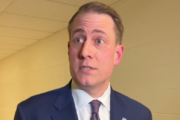Black Twitter is mourning the possible end of the influential community they found on Twitter more than a decade ago, but users are split between finding a new app or staying put.
“I’m not ready to go because I feel like that’s the case with a lot of things. Black people bring culture, community and love and so much energy and spirit and soul to whatever places we inhabit, and then someone else comes in and totally disrupts the energy and we leave, and they benefit from what we built,” Eunique Jones Gibson, an avid Twitter user and CEO of the marketing company Culture Brands, told CNN.
Gibson, like numerous other Black users, has bonded with strangers and elevated movements like “Black Lives Matter” and “Bring Back Our Girls” while using Black Twitter — the subset of the social media platform where Black people have conversations about everything from culture to race to identity. Since Elon Musk took over Twitter in October, the future of Black Twitter has led to debate among scholars and its users.
“We all see ourselves in this predicament where we’re now, like, ‘Dang, we built this up and now it belongs to someone who doesn’t share our same values,” Gibson said.
André Brock, a professor of Black digital studies at Georgia Tech who has studied Black Twitter, said Black users may not leave the platform, at least for some time.
“We’re going to live wherever we are, even if the circumstances aren’t perfect for us, but when have they ever (been)?” Brock told CNN, adding that the social media platform has been the go-to for Black users for more than a decade.
But Brock said the collective voice that represents Black Twitter will continue to be “Black as loudly and exuberantly as possible” no matter where it lives.
Charlton Mcllwain, a professor New York University and author of “Black Software: The Internet & Racial Justice, from the AfroNet to Black Lives Matter,” said Black Twitter does its own thinking, and Musk won’t change it. However, McIlwain says Musk could alter the platform to make it difficult to find each other or amplify other users’ tweets, or create a hostile environment.
“Amplifying the voices of White supremacist users and transforming the platform into a haven for anti-Black racism or racism targeting other identities could also negatively impact Black Twitter by creating an environment that users deem simply too hostile to be worth it,” McIllwain said.
While users are still deciding what to do after recent changes on Twitter — like the restoration of previously banned accounts and the upcoming roll out of a new verification system — civil rights organizations like the NAACP have called on companies to pause all advertising on the social media platform.
“Since Elon Musk has taken over Twitter, racial slurs have spiked, and conspiracy theories have spread,” the NAACP said in a statement.
Within the first 24 hours of Musk’s ownership, there were several reports that racist comments, hate speech and other objectionable content had increased significantly on Twitter as users tested Musk’s promise that he would allow “free speech” on the platform.
Derrick Johnson, president of the NAACP, and leaders of a coalition of groups aimed at stopping hate met with Musk to express their concerns and began calling on advertisers to boycott Twitter after Musk said former President Donald Trump’s account will be reinstated.
Black users are creating their own apps
The changes that Musk has pushed for or made in recent weeks have led Black users to seek other platforms, including some that are Black-owned, or even create new ones.
The social media app Mastodon has gained at least 230,000 users since Musk took control of Twitter, its creator Eugen Rochko told CNN Business earlier this month.
Isaac Hayes III has been inviting the Black Twitter community to join his social platform Fanbase, which he created to help Black users monetize their content and grow. He has tweeted that Black users should not feel like they don’t have a place to go if they want to.
For Yonathan Gebreyes, a tech entrepreneur and Black developer, the controversy and changes at Twitter are creating opportunities for smaller applications.
Earlier this year, Gebreyes launched a microblogging app called Paper Africa because he believes local and Western media outlets are not covering Africa in a timely manner.
“Users are now open to options. The growth and adoption we’re seeing with Paper Africa is an indication of people’s increased appetite,” Grebeyes told CNN.
Jordana Wright founded a social media platform called The Black Twitter App in April and has seen an increase in downloads since Musk took over Twitter. Wright says her application currently has 15,000 registered users.
“We do not have a Twitter-size budget. We do not have a Twitter-size staff. Twitter has about 20 years on us, but our day one looks pretty great” Wright told CNN.
Wright’s love for the Black Twitter community inspired her to develop her app, even though she knows no one can re-create it. It was a risk, she told CNN, but she wanted to create something meaningful for her community.
“I am someone who met my best friends through Black Twitter, got some of the biggest professional opportunities through Black Twitter. I’ve celebrated and cried with Black Twitter. It’s my community,” Wright said.






